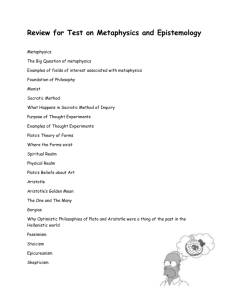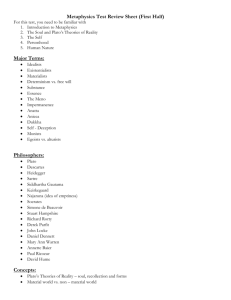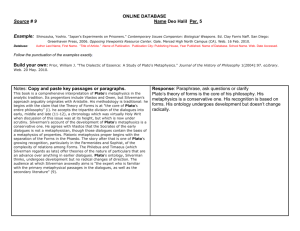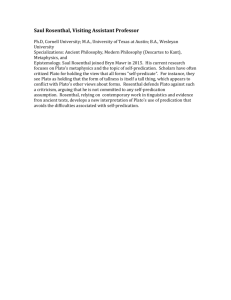PHILO 212
advertisement
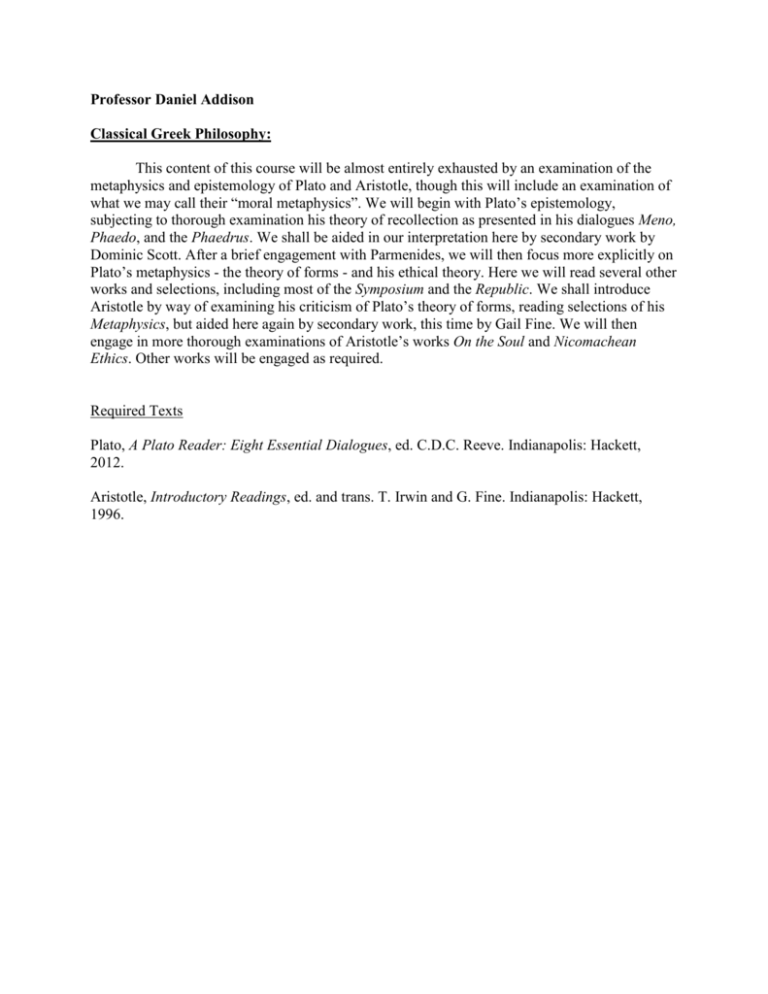
Professor Daniel Addison Classical Greek Philosophy: This content of this course will be almost entirely exhausted by an examination of the metaphysics and epistemology of Plato and Aristotle, though this will include an examination of what we may call their “moral metaphysics”. We will begin with Plato’s epistemology, subjecting to thorough examination his theory of recollection as presented in his dialogues Meno, Phaedo, and the Phaedrus. We shall be aided in our interpretation here by secondary work by Dominic Scott. After a brief engagement with Parmenides, we will then focus more explicitly on Plato’s metaphysics - the theory of forms - and his ethical theory. Here we will read several other works and selections, including most of the Symposium and the Republic. We shall introduce Aristotle by way of examining his criticism of Plato’s theory of forms, reading selections of his Metaphysics, but aided here again by secondary work, this time by Gail Fine. We will then engage in more thorough examinations of Aristotle’s works On the Soul and Nicomachean Ethics. Other works will be engaged as required. Required Texts Plato, A Plato Reader: Eight Essential Dialogues, ed. C.D.C. Reeve. Indianapolis: Hackett, 2012. Aristotle, Introductory Readings, ed. and trans. T. Irwin and G. Fine. Indianapolis: Hackett, 1996.
